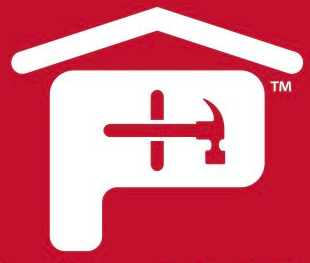
Standards organizations in the United States and Canada have developed thermal performance criteria for more than 35 years for ensuring the quality of closed cell polyiso roofing insulation that are typically referenced by specifiers in commercial roofing project teams.
Over time, the R-Value of industry standard performing polyiso insulation is typically about R-6 per inch. The LTTR form core values are based on ASTM C1289-06 and CAN/ULC S770, which provides a 15-year time-weighted average. The R-value changes over time due to changes in cell gas composition caused by diffusion of air into and blowing agent out of the foam cells, according to a Buildings magazine report (Long-Term Thermal Resistance: Predicting Aged R-Values of Polyiso Roof Insulation, April 30, 2003, https://www.buildings.com/tabid/3334/ArticleID/1349/Default.aspx)
The members of the Polyiso Insulation Manufacturers Association (PIMA) had adopted this standard for R-Values measurement in 2003. The association then implemented an industry-wide QualityMark certified R-value program for rigid polyiso roof insulation. The QualityMark program was introduced in 2004 to ensure accurate and reliable reporting of insulation thermal properties.
“LTTR is defined as the thermal resistance value of a closed-cell foam insulation product measured after storage for five years under prescribed laboratory conditions,” the Buildings report explained. “According to the text of S770, the five-year aged value is equivalent to the time-weighted average thermal resistance value over 15 years and should be used as the design value,” the report stated.
Starting in 2014, new standards for LTTR Value will be measured and reported based on multiple procedures. According to PIMA, the primary product standard for polyiso insulation (ASTM C-1289-11) was revised to include the most recent versions of both ASTM (ASTM C-1303-11) and CAN/ULC (CAN/ULC-S770-09) test methods to measure LTTR. Prior to the development of the latest version of ASTM product standard for polyiso, LTTR testing and reporting was based on a single test method (CAN/ULC-S770-03) identified in the previous version of the ASTM product standard (ASTM C-1289-08).
The LTTR values reported under the QualityMark program in 2013 will be based on ASTM C-1289-08 requirements, just as they have been for the past four years, PIMA stated, adding: This means that LTTR values currently reported in accordance with QualityMark certification standards will remain unchanged in 2013.

PIMA’s third-party verified QualityMark program for ensuring the LTTR of polyiso insulation products are measured and reported accurate by manufacturers and PIMA members.
A member of PIMA, Atlas Roofing Corporation manufacturers polyisocyanurate rigid insulation board for both low slope and steep slope applications that meets the QualityMark requirements. Atlas offers a variety of facer options for its polyiso products, ranging from black organic felt paper, coated glass, and composites, among others.
In addition to the excellent LTTR values of polyiso insulation, the product is moisture tolerant, has low moisture absorption with low water vapor permeance and the insulation panels can be adhered or mechanically attached.
Faced polyiso insulation remains the most widely used and cost effective insulation solutions available to project teams and has been installed in more than 50% of commercial roofing projects.



 Gear!
Gear! PRO LOGIN
PRO LOGIN